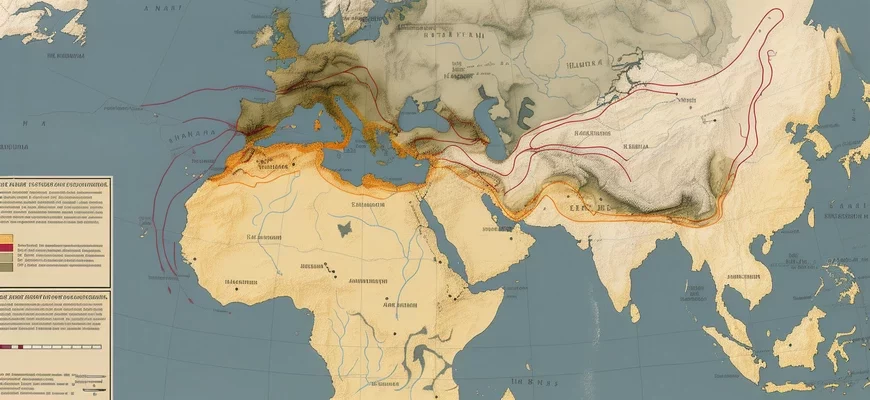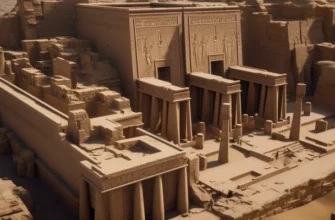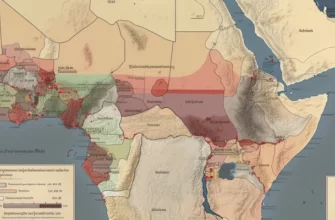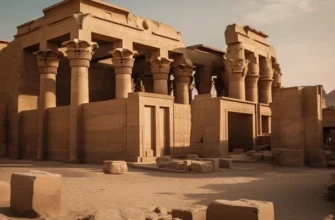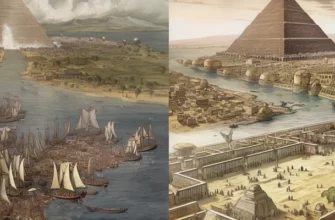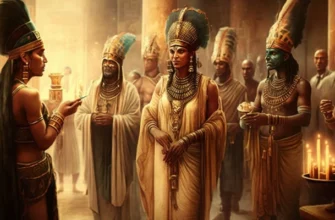The Second Intermediate Period in ancient Egypt is the period between the Second Intermediate Period and the New Kingdom, which lasted about 160 years (1715 – approx. 1554 BC). This transitional period was characterized by changes in the political and cultural life of Egypt, as well as changes in the social sphere. During this period, new states and dynasties were formed, and new cultural and religious trends emerged. The Second Intermediate Period had a major impact on the further development of ancient Egypt.
Historical context
The period between 1715 and c. 1554 BC in ancient Egypt was the period of the Second Intermediate Period, which arose after the end of the Second Intermediate Period. During this period, new states and dynasties were formed, and changes in culture and religion took place. It was a time when Egypt was influenced by foreign peoples, such as the Hyksos and the Greeks, which led to significant changes in the political and cultural life of the country. The restoration of national unity took place later during the New Kingdom.
Reasons for the transitional period
The main reasons for the transitional period between 1715 and approx. 1554 BC in ancient Egypt were political and social changes. During the Second Intermediate Period, new states and dynasties were formed, which competed with each other for power. There were also a large number of invasions by foreign peoples, such as the Hyksos, which forced the Egyptian government to reorganize and increase the country’s defense capabilities. In addition, cultural and religious trends were changing, which also influenced the political and social landscape of Egypt.
Political changes
The period between 1715 and about 1554 BC in ancient Egypt was a time of significant political change. During this period, new states and dynasties were formed, competing with each other for power. New centers of power were created and the system of government changed. New titles and positions appeared, such as “great leader” and “head of the council,” indicating a change in the political landscape. There were also a large number of invasions by foreign peoples, which required changes in the political organization of the country. In addition, during the transitional period, ideas of national unity and the creation of a single centralized government developed, which were later implemented during the New Kingdom.
Cultural changes
Between 1715 and about 1554 BC, ancient Egypt underwent significant cultural changes. In particular, new artistic trends such as architecture and sculpture developed during this period. New forms of writing also emerged, such as demotic writing, which made writing more accessible to a wider range of people. New religious and philosophical ideas emerged during this period, influencing the cultural practices of the country. In particular, the transitional period saw a change in beliefs, accompanied by the introduction of new gods and changes in religious rituals. In addition, new forms of literature, such as novels and adventure stories, developed during this period.
Consequences of the transitional period
The transitional period between 1715 and c. 1554 BC in ancient Egypt had significant consequences for the country and its population. The period was characterized by political instability and competition between different states and dynasties, which led to frequent wars and conflicts. However, this period also contributed to the development of new cultural and religious ideas that later became characteristic of Egyptian culture.
One of the most significant consequences of the transitional period was the change in the political system and the restoration of a unified state in Egypt. This became possible during the New Kingdom, when power was concentrated in the hands of the pharaoh and his government.
The transitional period also saw a change in cultural and religious practices, which influenced the further development of Egyptian culture and religion.
In addition, the transitional period contributed to the development of new technologies and innovations in construction and other industries, allowing the country to develop further and become one of the world’s leading cultural and scientific powers.
Impact on the social sphere
The transitional period between 1715 and c. 1554 BC in Egypt had a significant impact on the social sphere of the country. The period was characterized by political instability and conflicts, which led to a change in the social structure of the population.
During the transition period, the influence of the ancient Egyptian elite declined, leading to an increase in the importance of local leaders and the hierarchy of local temples. As a result, the social structure of the population became more decentralized, and the importance of local leaders increased.
The transitional period also contributed to the spread of new ideas and religious practices, which influenced the social sphere of the country. New religious ideas led to changes in art, culture, and social structures.
In the later period of the New Kingdom, after the end of the transitional period, the social structure stabilized, and the elite regained their influence over the country. However, the consequences of the transitional period had a significant impact on the social and cultural identity of the Egyptian people.
Conclusion
The Second Intermediate Period in the history of Ancient Egypt (1715 – c. 1554 BC) was a difficult period accompanied by political instability and conflict. This period significantly changed the political and social situation in the country and also influenced cultural processes.
During the transitional period, the influence of the ancient Egyptian elite declined, while the importance of local leaders increased. There were also changes in culture and religious practices. However, this period was a difficult test for the people and led to changes in the social structure of the population.
The consequences of the transitional period became an important stage in the history of Egypt, influencing the country’s future development. It led to changes in political and social life, changes in culture and religious practices, which influenced the further development of Egypt as a civilization.
